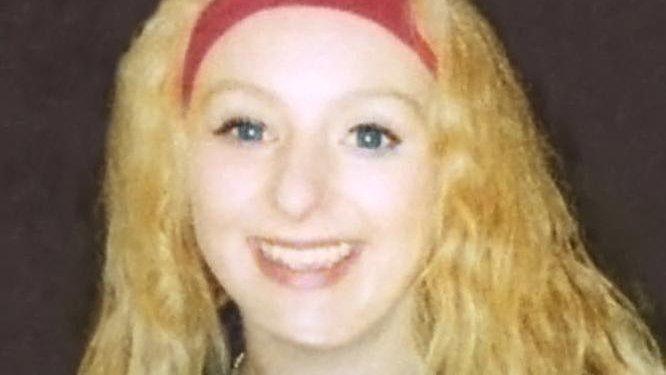Christopher Halliwell: Becky Godden murder probe missed clues
- Published
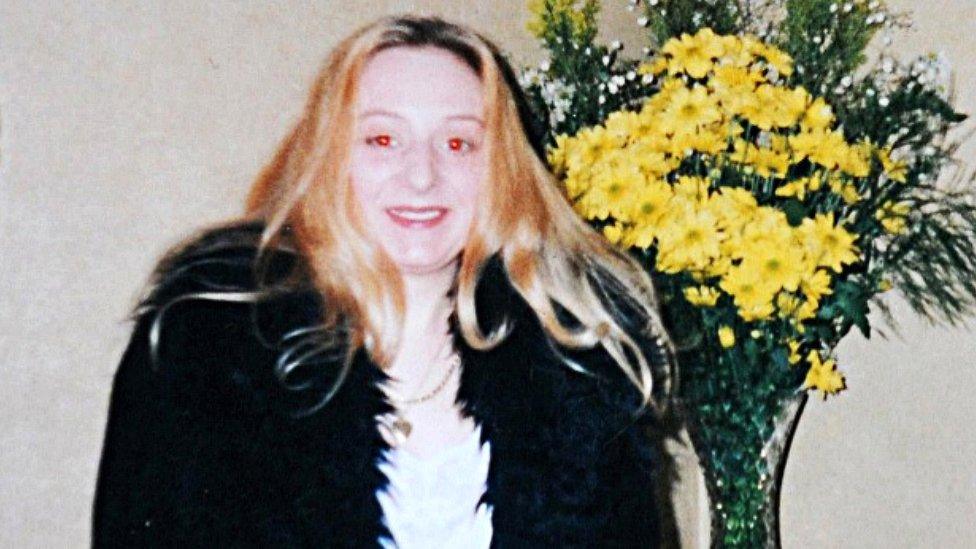
Becky Godden was one of two women murdered by Christopher Halliwell
Significant opportunities to bring Becky Godden's killer to justice sooner were missed during a flawed murder investigation, a report says.
Wiltshire Police Chief Constable Kier Pritchard has been heavily criticised over the inquiry into double murderer Christopher Halliwell.
An Independent Office for Police Conduct (IOPC) report, external said the investigation “was poorly supervised”.
Mr Pritchard said he had personally apologised to Miss Godden's family.
Wiltshire Police has also formally apologised to them, after the IOPC determined there was a "fog of confusion" over who was in charge of the investigation into her disappearance.
'Unbelievable'
Karen Edwards, Miss Godden's mother, said failings by officers investigating the murder of her daughter were "unbelievable".
She added she was "elated" with the outcome of the report and to have finally received an apology after years spent campaigning for justice.
Ms Edwards said: "There has been such a failure within Wiltshire Police.
"That evidence they had in 2016 when he was convicted, they had in their hands in 2011 - they chose not to hand it up.
"The fact they sat on that evidence is just wrong."
Halliwell, from Swindon, admitted murdering Miss Godden while being questioned about the murder of another young woman - Sian O'Callaghan - in 2011.
He then led police to where he had buried Miss Godden in January 2003.
But he could not be prosecuted because detectives failed to caution him or offer him access to a lawyer and a judge ruled the confession was inadmissible in court.
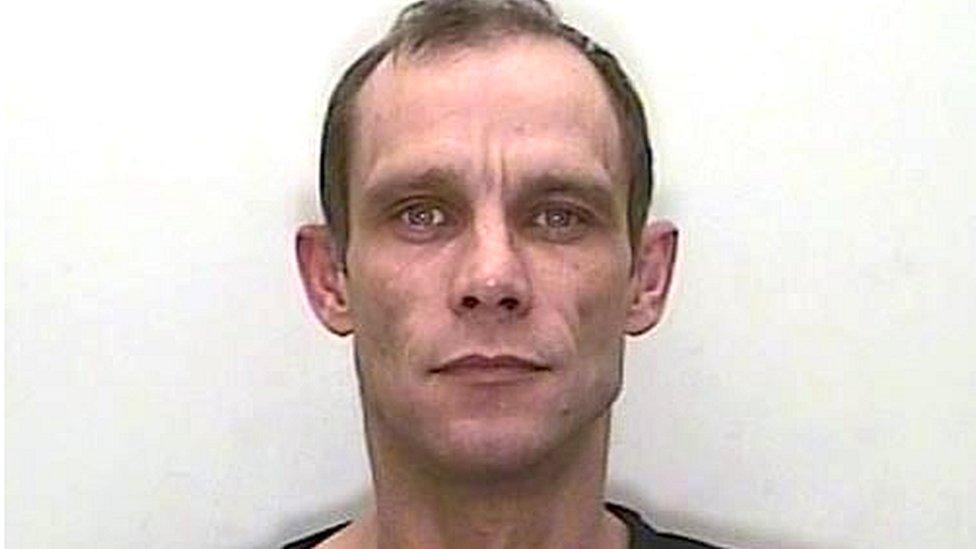
Christopher Halliwell was finally convicted over Miss Godden's murder in 2016
Mr Pritchard was a detective chief superintendent at the time, with overall responsibility for all serious and major crime investigations at Wiltshire Police - although he was not the senior investigating officer for the Halliwell murders.
The IOPC said that between 2011 and 2014, the murder inquiry was poorly progressed and supervised, with no senior investigating officer handling it between detective Steve Fulcher stepping down in 2011 and Det Insp Matt Davey taking over in October 2012.
It added there were several lines of inquiry not properly followed, including soil found on a spade belonging to Halliwell in 2011 that was not forensically examined until 2014 which matched rare soil found where Miss Godden was found.
Halliwell was eventually put on trial for her murder, and was convicted in 2016 - five years after he first told police about the location of Miss Godden's body.

Analysis from BBC Wiltshire political reporter Dan O'Brien
The Becky Godden and Sian O'Callaghan murders put Wiltshire Police in the national spotlight.
There was the shock of course - local taxi driver Christopher Halliwell had killed two young women.
But the handling of the investigation also quickly became controversial, with questions raised over how his confessions were obtained.
And today's report shows the force missed opportunities to convict Halliwell for Miss Godden's murder years earlier than they did.
The force's leadership acknowledge the shortcomings "further compounded the terrible pain and loss" endured by Miss Godden's family, and have apologised again.
But this report also adds further pressure on the Chief Constable Kier Pritchard, as we now know he has faced "management action" - a sort of disciplinary - as the IOPC has found "there was a case to answer for misconduct".
He says the shortcomings are a matter of "personal regret" and that he takes "full responsibility".
But add to this other severe criticisms raised in recent months when Her Majesty's Inspectorate placed Wiltshire into special measures, there is real pressure on the chief to show improvements fast.

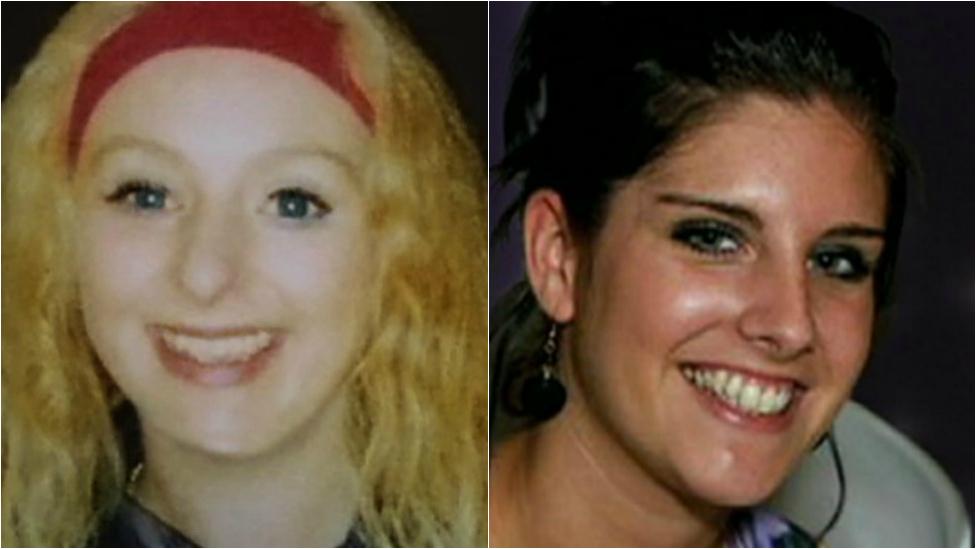
Becky Godden and Sian O'Callaghan were murdered by taxi driver Christopher Halliwell
The IOPC report was compiled in response to complaints from Miss Godden's mother Karen about Mr Pritchard and two officers who have since left the force.
Examples of Wiltshire Police's failure to progress lines of inquiry prior to 2014 included:
Failing to forensically examine a soil sample seized in 2011 - which matched the soil in the field where Miss Godden was found - until three years later
A pond in Ramsbury containing women's clothing and other exhibits, which was later identified as Halliwell's "trophy store", was not investigated until 2014. By that time, the evidence had degraded and lost any forensic potential
A gamekeeper at Ramsbury told the incident room in 2011 about seeing a taxi at the location at or around the time when Sian O'Callaghan was abducted, but this evidence was not explored, and no witness statement was obtained until February 2015
Detailed evidence from an RAC recovery driver who attended Halliwell's broken down vehicle in 2003, six miles from where Miss Godden was buried, was known about in 2011, but detailed evidence was only established after more stringent enquiries three years later
There was evidence from a GP in April 2011 that Halliwell had visited their surgery on 3 January 2003 with severe scratches to his face and damage to his hand, claiming he had been assaulted by a passenger in his taxi. Halliwell had not reported this alleged assault to police, but he had reported a similar incident previously, which indicated this was potentially suspicious
The evidence of a medical officer at Gablecross custody suite, who stated on 24 March 2011 that Halliwell told him he had been arrested for killing two people - this formed part of the evidence used to convict him in 2016
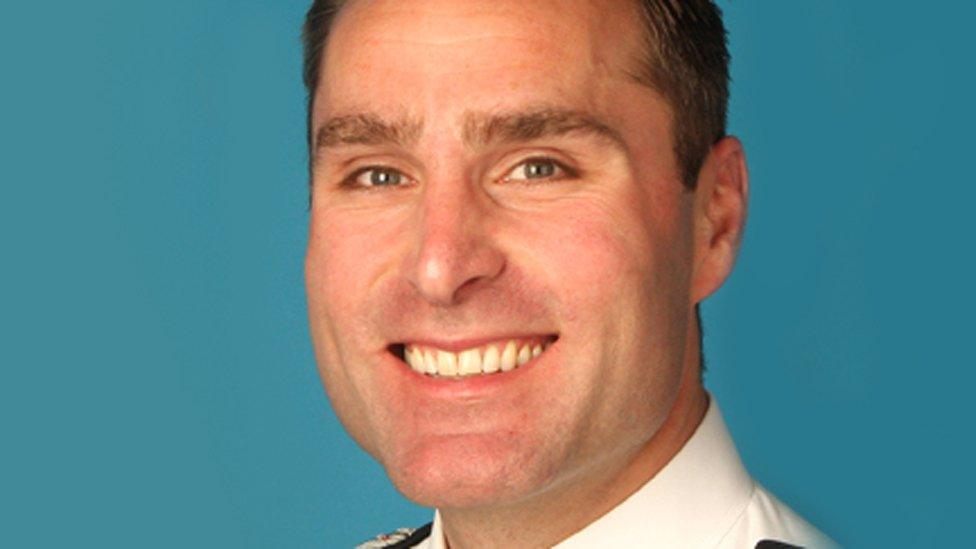
Kier Pritchard has faced a form of disciplinary action as a result of the IOPC investigation
The IOPC ruled that if the various witness and forensic evidence had been thoroughly investigated and the Crown Prosecution Service had been made aware of outstanding lines of inquiry prior to a pre-trial hearing in 2012, then it might have led to a different judicial decision.
IOPC regional director Catrin Evans said it had found "serious failings" in the way the force handled the murder investigation after the initial charges relating to Miss Godden's murder were dropped in 2012.
"In our view, the issues that arose stemmed from a combination of systemic weaknesses within the force at the time as well as individual shortcomings," she said.
"Our investigation indicated that no-one in Wiltshire Police took responsibility for ensuring that the murder inquiry progressed effectively."
Wiltshire Police said it had already acted on the IOPC recommendations, which suggested focusing on ensuring better strategic oversight and review of murder investigations, as well as an improved use of a major inquiry system.
Mr Pritchard said: "As chief constable of the force, I fully accept the findings and recommendations outlined in today's report and I have had the opportunity to personally apologise to members of Becky's family.
"The murder investigation was a complex case with very unique circumstances. We always strove to deliver justice for Becky's family, further to the tragic and shocking loss of their much-loved daughter."
Wiltshire Police deputy chief constable Paul Mills said: "We are sincerely and deeply sorry for the impact these avoidable delays in the investigation had on Becky's family and recognise these have further compounded the terrible pain and loss endured as result of the murder of their much-loved daughter."

Follow BBC West on Facebook, external, Twitter, external and Instagram, external. Send your story ideas to: bristol@bbc.co.uk , external
Related topics
- Published19 September 2016
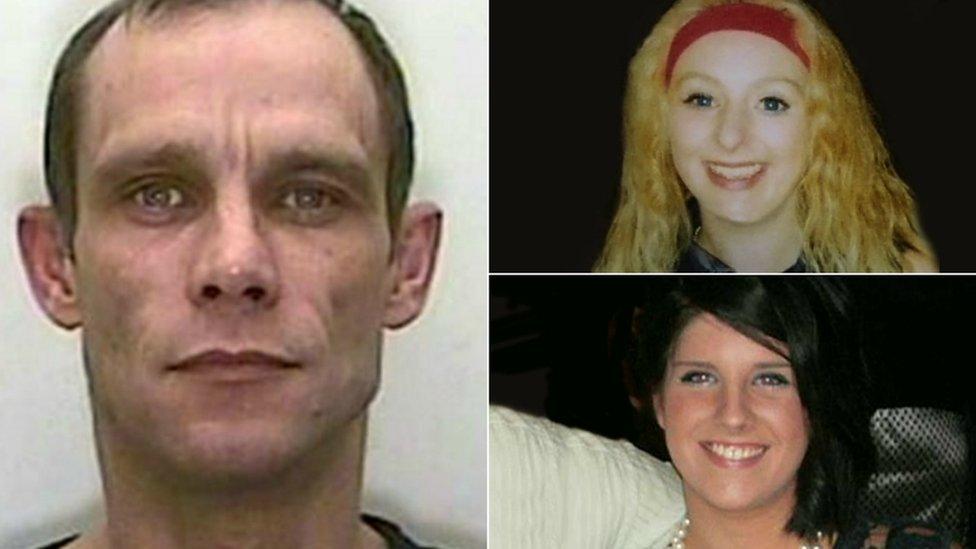
- Published9 September 2013
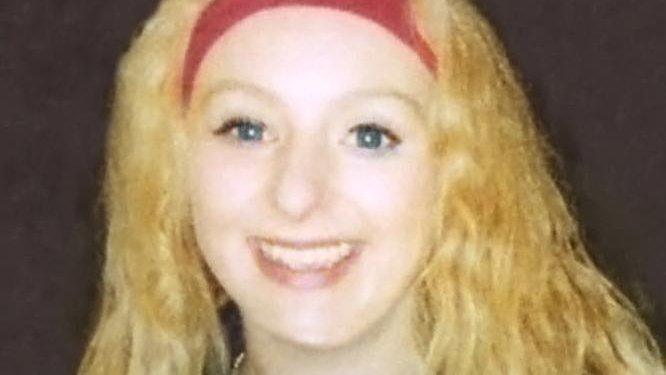
- Published23 April 2013
